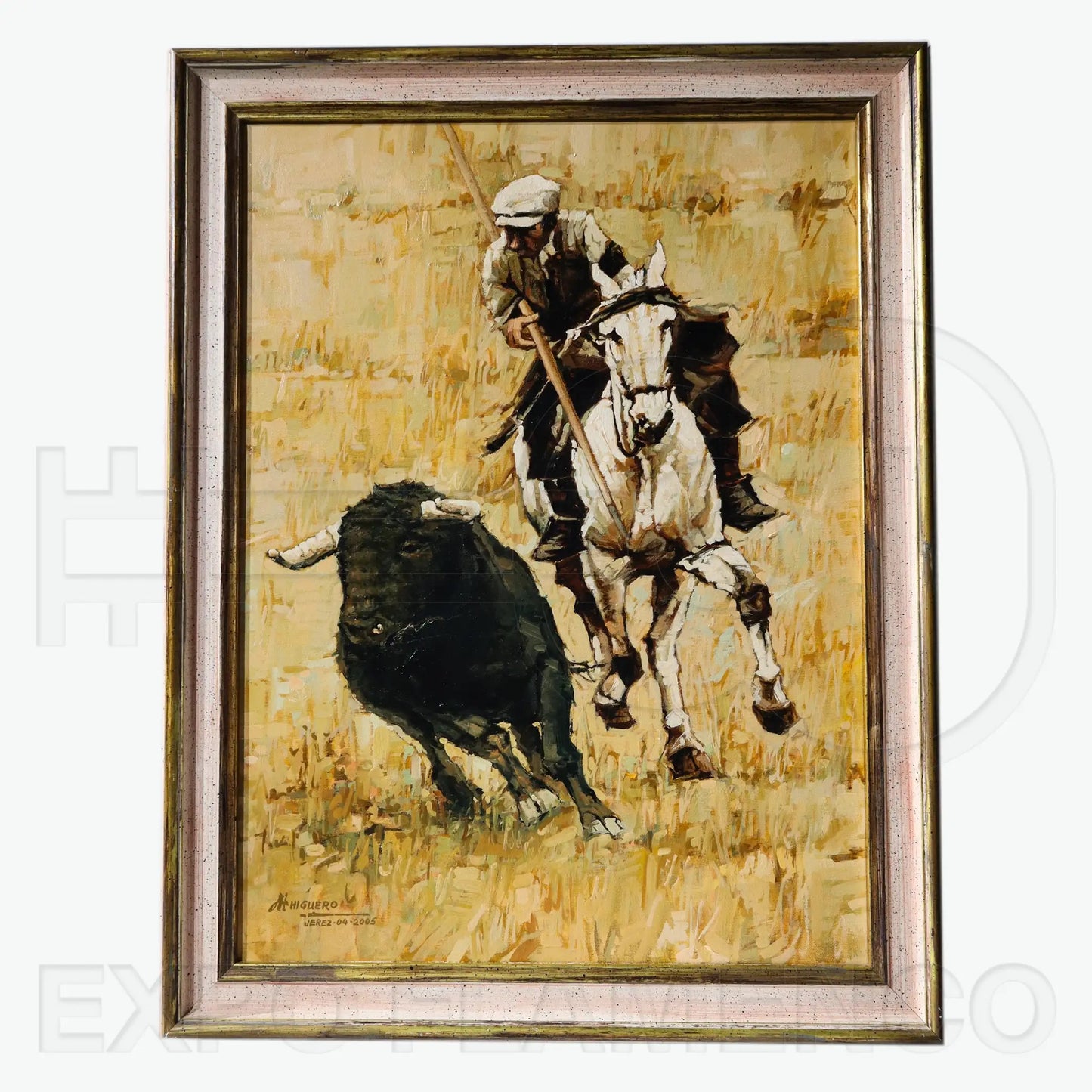Antonio Higuero
Antonio Higuero - Pole Vaulter II
Antonio Higuero - Pole Vaulter II
Couldn't load pickup availability
Oil on canvas
Measures 60x46 cm
Framed off- white and gold wooden frame 6.5 cm
Antonio Higuero Domínguez was born on December 6, 1942 at 20 Empedrada Street, in Jerez de la Frontera, where the La Bulería club is currently located, of which he is a member, in a humble family where his mother, Paca, made sure that he went to school and learned a trade.
He studied at the Mundo Nuevo school, Sacred Heart of Jesus until he was 11 years old.
continue later in Porvera at the School of Art.
He began to make his first strokes as a draftsman in Litografía Hurtado and continued for years.
later in Mamelón Graphic Projects.
In 1973 he decided to take a further step and went with his family to Madrid to work at Cartonajes, in Alcalá de Henares as a designer, although they did not adapt to the big city and within a few months they returned to live in Jerez.
He continued working as a cartoonist, but this time as an employee of companies such as Grafibérica. But it was in 1986 when he decided to devote himself fully to painting as an artistic painter, his great passion and a decision that was always encouraged by his wife Mariquita.
He received numerous commissions such as personal portraits, landscapes,... and in 1991 he decided to do
his first exhibition. It was at the Casino Jerezano, on Larga Street, which had a great
success on a personal level and where he established himself as one of the best painters in Jerez.
Already immersed in the world of brushes, in 1993 he exhibited at the Paco Daza Hall a
Cinegética collection. We do not want to overlook his exhibitions also at IFECA during the Jerez fairs, animated by Tatus.
And finally, what better way to describe the personality of Antonio Higuero in his paintings than as Manuel Ríos Ruiz wrote in the catalogue of one of the exhibitions that Tatus did of various painters and which says:
Where would we place the reality that Higuero uses with his colors? The realism of
Fig tree is to be seen from a certain distance, in order to see the line, the drawing in a word,
lose intensity and allow our sight to better treasure the spot that emerges with force, as if wanting to be in front of itself.
And the drawing imprisons the portraits and figures of fig tree the excellences of a good painting, but each artist has his supports from which to undertake the
long-awaited evolution.
Share


